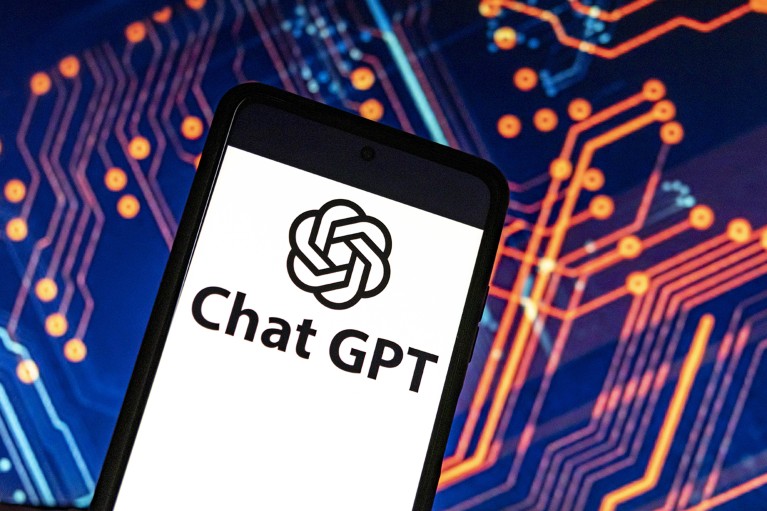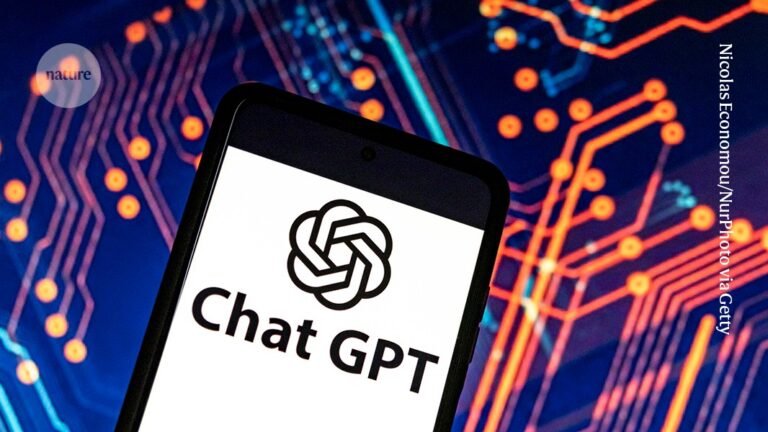
ChatGPT is a generative artificial intelligence system that learns from large amounts of human-generated data.Credit: Nicolas Economou/NurPhoto via Getty
In the two years since ChatGPT was made publicresearchers use it to refine their academic writing, consult the scientific literature And write code to analyze data. Although some believe that the chatbot, which debuted on a large scale on November 30, 2022, is make scientists more productiveothers fear this is the case facilitate plagiarism, introduce inaccuracies in research articles and consume large amounts of energy.
AI makes plagiarism more difficult. How should scientists respond?
Wiley Publishing, based in Hoboken, New Jersey, surveyed 1,043 researchers in March and April about how they use generative artificial intelligence (AI) tools such as ChatGPT, and shared preliminary results with Nature. Eighty-one percent of respondents said they had used ChatGPT in a personal or professional capacity, making it by far the most popular tool of its type among academics. Three-quarters of them think that over the next five years it would be important for researchers to develop AI skills to do their work.
“Before, people used AI writing assistants, but there’s been a pretty substantial shift with the release of these large, very powerful language models,” says James Zou, an AI researcher at Stanford University in California. . The one that caused the earth-shaking change is the one behind the chatbot ChatGPT, created by technology company OpenAI, based in San Francisco, California.
To mark the two years of the chatbot, Nature compiled data on its use and spoke with scientists about how ChatGPT has changed the research landscape.
ChatGPT in numbers
• 60,000: the minimum number of scientific articles published in 2023 that would have been written with the help of a large linguistic model (LLM)1. This represents just over 1% of all articles in the Dimensions of Academic Publications database studied by the research team.
• 10%: the minimum percentage of research articles published by members of the biomedical sciences community in the first half of 2024 whose abstracts were written using an LLM2. Another study estimates that the percentage was higher — 17.5% — for the IT community in February.3.
• 6.5 to 16.9%: the percentage of peer reviews submitted to a selection of top AI conferences in 2023 and 2024 that would have been largely generated by LLMs4. These reviews evaluate research papers or presentations proposed for meetings.

